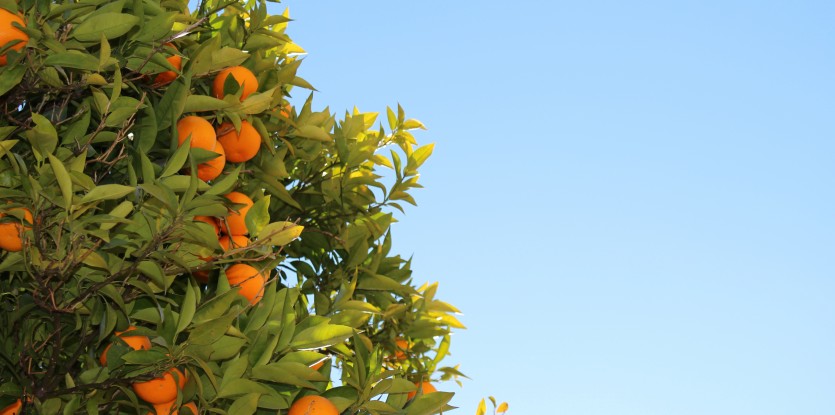Our sages relate that when the Red Sea split for the Jewish people, fruit-bearing trees grew from the sea bed; the children picked the fruit off these trees and fed them to the birds, who joined the Jewish people in their singing of praise to the Almighty.[1]
We are told that G-d is loath to overturn the laws He established to define and regulate the natural order of the universe.[2] A miracle is thus an extraordinary occurrence, performed only when absolutely necessary. So what was the purpose of these instantly sprouting and fruiting trees?
Historical Opportunity
“Everything was created to serve me,” states the Talmud, “and I was created to serve my Creator.”[3] For man alone has been granted freedom of choice and volition; only his deeds have a moral and transcendent significance. So while every entity and being has a role in the Divine purpose in creation, they all depend upon man for the realization of this role through his development and utilization of them in accordance with the Creator’s design. It is man to whom the Torah, which outlines this design, has been given, and it is man who has been granted the franchise and ability to implement it.
When man performs an act that serves G-d’s plan for creation, he thereby “elevates” the myriad of objects and forces he involves in his deed. For example, when a person writes a check to charity, he elevates the paper and ink of his check, the entire array of tools and resources he drew upon, and the energy he expended, to earn the money, the food and drink which fueled this energy, the environment which produced this food, etc., etc. All these now become partner to a moral deed, a deed which transcends the mundane, self-oriented nature of all physical things–something they could never have achieved on their own.
Ultimately, every created thing has its particular potential to serve man in his service of the Creator. Our sages tell us that a brook running through a remote forest clearing may wait thousands of years for its single opportunity to be elevated; for the day that a Jew walks by and, upon proclaiming the blessing “Blessed are you G-d… Who everything came into being by His word,” drinks thirstily of its waters.
The Precedent
The crossing of the Red Sea was an important step in our journey from Egypt to Sinai, where we received the Torah—the document to define our mandate and mission in G-d’s world. So in this crossing, the nature of our role in developing and sublimating our environment was demonstrated to us.
The earth has been imbued by the Creator with the power to germinate a seed and nurture it from seedling to sapling to fruit-yielding tree. Yet here was a piece of land that, for thousands of years prior to this moment and for thousands of years to follow, would have no opportunity to realize this potential. And for the brief while that the sea parted to allow the people of Israel to cross, this narrow strip of land came to life, sprouting trees and yielding fruit—all so that birds should be fed and chirp, beautifying a Jew’s song of praise to the Almighty.
This was to establish a most powerful precedent in how we are to relate to the resources that have been placed at our disposal. No potential, no matter how fleeting or peripheral, should be discounted. For this may very well be the moment that a significant part of G-d’s creation will realize its Divine essence and purpose through its contact with your life.
Based on an address by the Rebbe, Shvat 15, 5723 (February 9, 1963).
________________
[1] Related in the name of the Maharal of Prague; see also Midrash Rabba, Shmot 21:9.
[2] See Jeremiah 33:25; Talmud, Avodah Zara 54b and Shabbos 53b; Drashot HaRan pg 8.
[3] Talmud, Kiddushin 82a.







